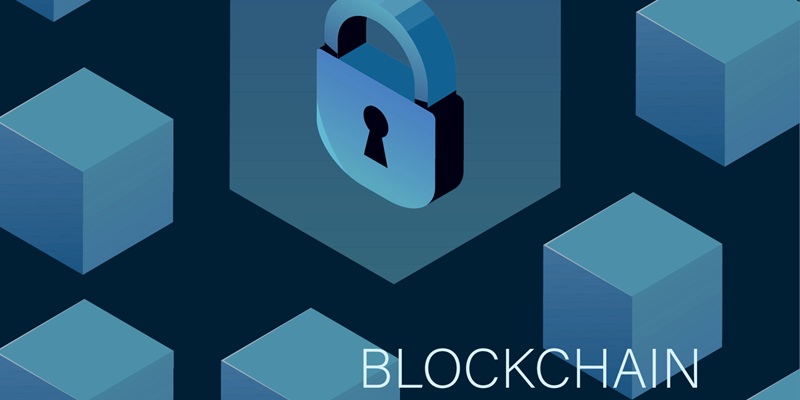Blockchain technology has emerged as a groundbreaking solution with the potential to revolutionize various industries, including e-governance. The principles of decentralization, transparency, and security on which blockchain operates are key factors driving its adoption in the realm of digital governance. This article explores the profound impact that blockchain technology is making on e-governance initiatives, offering a transformative path forward.
Explanation of the Principles on Which Blockchain Operates: Decentralization, Transparency, and Security
At the core of blockchain technology lies the principle of decentralization. Unlike traditional systems where power resides with a central authority, blockchain operates on a distributed network, eliminating the need for intermediaries. Transparency is another crucial principle. Blockchain creates an open and transparent ledger that can be accessed by all participants, ensuring that information cannot be altered without consensus. Security is also inherent in blockchain, as data stored in blocks is cryptographically linked and cannot be tampered with, making it highly secure.
Fostering Transparency and Accountability in E-Governance Initiatives
Emerging technologies have the potential to transform governance models, and blockchain stands out by aligning with the core objectives of e-governance initiatives. By fostering transparency and accountability through its decentralized nature, blockchain provides an ideal platform for governments to build trust with their citizens. With blockchain, transactions and decisions are recorded on an immutable ledger that can be audited by anyone, ensuring transparency in the decision-making process and holding officials accountable.
Exploring the Transparent and Tamper-proof Record-Keeping Capabilities of Blockchain
One of the key strengths of blockchain is its ability to provide transparent and tamper-proof record-keeping. Traditional record-keeping systems are susceptible to fraud and manipulation. Blockchain solves this problem by creating a permanent and transparent ledger that cannot be altered retroactively. This feature ensures that information stored on the blockchain can be trusted and relied upon, making it an invaluable tool for governments aiming to maintain accurate and secure records.
Minimizing Corruption and Ensuring Adherence to Rules and Regulations Through Smart Contracts
Smart contracts, a key feature of blockchain, play a pivotal role in minimizing corruption in e-governance. These self-executing contracts automatically enforce predefined rules and regulations without the need for intermediaries. By eliminating the human element, the risk of corruption is substantially reduced. Smart contracts also ensure that public officials adhere to predetermined protocols, promoting fairness and accountability in the execution of governance processes.
Estonia’s Pioneering Use of Blockchain in Transforming Government-Citizen Interactions
Estonia has been at the forefront of leveraging blockchain technology to revolutionize e-governance. The country has implemented the e-residency program, utilizing blockchain for secure digital identity management. Through this program, individuals can access government services and establish businesses remotely, with their identities securely stored on the blockchain. Estonia’s innovative use of blockchain demonstrates the technology’s potential to transform the way governments interact with citizens, offering convenience, security, and efficiency.
Blockchain’s Potential for Secure Identity Management in E-governance
Identity management is a crucial aspect of e-governance, and blockchain offers a secure solution. With blockchain’s decentralized and immutable record-keeping, individuals can have full control over their personal data. Government agencies can leverage blockchain to verify identities securely, reducing the risk of identity theft and fraud. Blockchain-based identity management also streamlines processes for citizens, facilitating easy access to services while maintaining privacy and security.
Consideration of the Complexities Involved in Implementing Blockchain-based E-governance Initiatives
While the potential of blockchain in e-governance is vast, governments venturing into such initiatives must carefully consider the complexities involved. Blockchain implementation requires a significant investment in infrastructure, expertise, and skill development. Collaborative efforts between government bodies, regulatory authorities, and technology experts are essential for successful deployment. Navigating legal and regulatory frameworks, interoperability challenges, and scalability issues are crucial considerations for governments aiming to harness the full potential of blockchain in governance.
How Blockchain’s Transparency Enables Citizens to Trace Decision-Making Processes
Citizens’ involvement and understanding of decision-making processes are fundamental to effective governance. Blockchain’s transparency ensures that citizens can trace the decision-making process, providing insight into how policies are formulated and executed. By having access to an immutable record of decisions and actions taken by government bodies, citizens can hold officials accountable, fostering a culture of transparency and enhancing trust between governments and citizens.
As governments strive to implement effective e-governance initiatives, integrating blockchain technology offers a transformative path forward. Blockchain’s inherent principles of decentralization, transparency, and security align with the core objectives of e-governance. It fosters transparency and accountability, minimizes corruption through smart contracts, provides tamper-proof record-keeping, and offers secure identity management solutions. While complexities exist, governments willing to invest in blockchain technology can unlock its potential to create more transparent, efficient, and citizen-centric governance systems. By embracing blockchain, governments have the opportunity to reshape the way they interact with citizens and build trust in the digital era.

